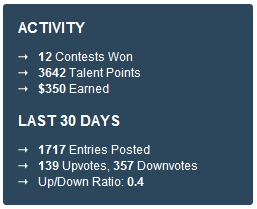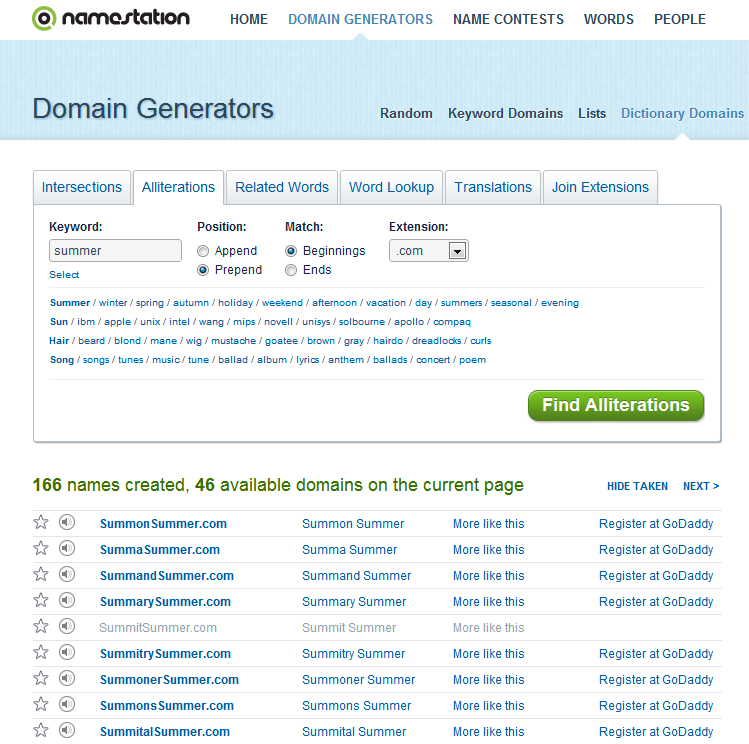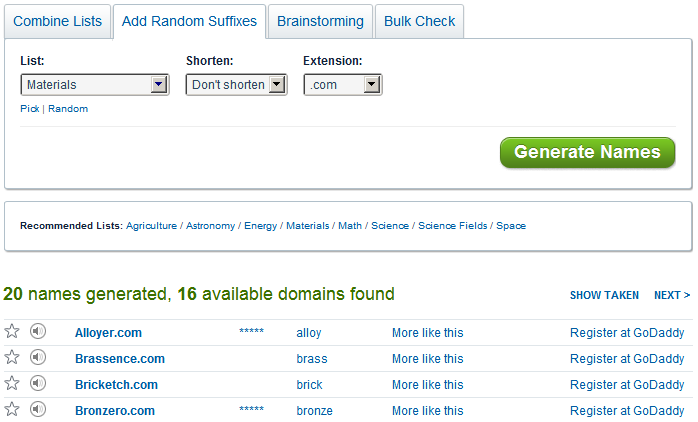Compounds and clipping compounds
NameStation’s conceptual wordlists include thousands of entries that could give inspiration for your own name searches. People normally pick a concept (or several of them) that in a way correspond to the message they want their company to carry – such concepts are represented in NameStation by wordlist titles, e.g. Art, Events, Creative, etc – and start combining list entries. We are constantly coming up with new wordlists, so if you do not find a suitable one, just send us a message.
You can use these lists for the same kind of word generation that also goes on in languages as a natural process. The easiest and sometimes also the best method is compounding – joining two or more words to create a new lexeme with an individual meaning different from the meanings that the component parts possess in isolation. The most widespread compounding formula is joining two words in a way that the first word denotes a speacial kind of referent of the last word, eg foot + ball = football, black+board=blackboard. Look closely – even NameStation is based on the same principle, although the meaning is slightly more metaphorical. Such names can be found in various business fields; further examples include Facebook, Miniclip, Morningstar, MarketWatch and TrueCar.
A disadvantage that often comes up is that unless you use relatively short words, your business name could end up being too long. What would you remember better: Group Coupon or Groupon; Integrated Electronics or Intel? Most people would pick the latter. In essence, these are compunds as well. To be more exact, they are clipping compounds because a part of the word has been clipped. In common use, such names often lose their original meaning, so that when speaking of Intel, we disregard the fact that originallythe word denoted Integrated Electronics. It is just Intel for us, a brand that carries the associations it has managed to create through its activity.
Compounding on NameStation
On NameStation Domain Generator, go to Combine Lists and choose two concepts you like. Under the option Blending you can pick the length of the word parts you want to remain in your clipping compound. Finally, press Generate Names and there you go, you have a list of possible name variants. It pays off trying the same lists several times, because every time you press Generate Names the search engine combines the entries differently.
If there is a word that definitely needs to be represented in your name, use Append Lists, which appends or prepends one of our conceptual wordlists to your preselected word. For example, professional + wordlist creative results in variants such as professact, profetale, profilize, profedium, etc.
Not to get your hopes too high, it usually recquires some time trying out different lists before arriving at a good name candidate. You could also experiment with different lengths of compound parts. We are sure, however, that eventually you will be surprised at the variety of options NameStation is able to generate and find one that best conveys the principles behind your business.




